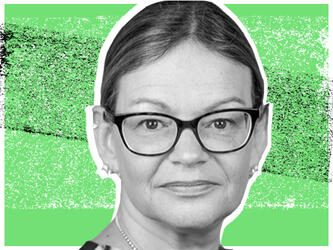Behavioural economics: a con?

Kahneman, as a psychologist, is annoyed at the monopoly that economists have built on policy-making, which he points out may be because whilst people are willing to admit their ignorance about economics, they tend to believe they naturally understand psychology.
Much of what he says here is decidedly tongue in cheek, but something does cut through his false outrage.
Swap ‘economists’ for ‘management consultants’ or ‘ad agencies’, and ‘policy-making’ for ‘brand strategy’ and I suspect a few researchers may well sympathise… His general point is that, unfortunately, the tag ‘behavioural economist’ gives more credibility than ‘psychologist’, and Kahneman feels psychologists have been a bit hard done by. As a former anthropology student, it feels unnatural to advocate for psychologists (at university these two departments were very literally arranged opposing each other down two sides of a corridor), but on this I’m inclined to agree with him.
Apologies to the psychologists, economists, and perhaps even behavioural economists I’m about to misrepresent here, but, broadly speaking:
Psychology: develops a theory based on what’s already known, tests the hypothesis with a controlled experiment, then refines the theory based on the evidence
Behavioural economics: says orthodox economists totally misunderstand people by assuming they’re 100% rational (which is a bit unfair, but it makes for a nice narrative). Other than this, it’s often psychologists carrying out experiments as above…
Perhaps not a million miles away from each other. So is behavioural economics just a useful name? The original article had caught my eye after a query at Tonic NYC about what behavioural economics really is, and I suppose that’s the answer. In some ways, it’s just a marketing strategy to gain more impact from psychological insights.
But I sympathise. Isn’t that something we should be aiming to help research clients do too? Does the label of ‘researcher’ hurt us in exactly the same way as Kahneman feels ‘psychologist’ does? Maybe, but that’s a discussion for another day.
Most great examples of behaviour-changing ideas are a combination of psychological, marketing, and business insights – even when that’s then called behavioural economics. Our priority as an agency, I think, should be to keep absorbing ideas from across disciplines, and aiming to be well-rounded insight specialists, regardless of what we label ourselves as. Ultimately, that is how we’re be able to produce the valuable work clients need and help it get the traction it deserves.
In the end though, even Kahneman compromises and suggests we all settle for ‘behavioural scientists’. Perhaps he’s used his psychology to brainwash me, but I’m happy to agree. Ask any researcher – client-side, agency-side, psychologist, or governmental – if it’s helping great insight get things done, it’s got to be a good thing.
Charlie Richards is an account director at Tonic Insight

We hope you enjoyed this article.
Research Live is published by MRS.
The Market Research Society (MRS) exists to promote and protect the research sector, showcasing how research delivers impact for businesses and government.
Members of MRS enjoy many benefits including tailoured policy guidance, discounts on training and conferences, and access to member-only content.
For example, there's an archive of winning case studies from over a decade of MRS Awards.
Find out more about the benefits of joining MRS here.













3 Comments
Colin Strong
10 years ago
I think this is very fair comment. Of course we all like short cuts but there is a danger that as an industry we limit ourselves to 'system 1 / system 2' thinking when in fact there is a vast and largely untapped body of work across the behavioural sciences that our profession can and should be drawing on. The beauty of being a practitioner rather than an academic is that we are able to use different sources and perspectives to solve problems - we don't need to be fixed in one particular solution / way of thinking. I think the tenet of Charlies argument is let's not be too quick to limit ourselves. I agree!
Like Reply Report
Annie Pettit
10 years ago
Behavioural economics is nothing more than a new buzzword for psychology. The extensive research that psychologists have conducted for a century now has proven that human behaviour is both conscious and unconscious. If market researchers only figured that out when the word behavioural economics was created, that's really unfortunate.
Like Reply Report
Sandra Pickering
10 years ago
I agree with Annie on BE being the new buzzword for psychology, I know you are deliberately simplifying definitions, Charlie, but psychology proceeds just like any other science, using scientific method. The inspiration for a theory can come from anywhere including but not limited to 'what is already known' within the realm of psychology. As a marketer, I am a great admirer of the branding job done by the BE community compared to the psychology community ;)
Like Reply Report